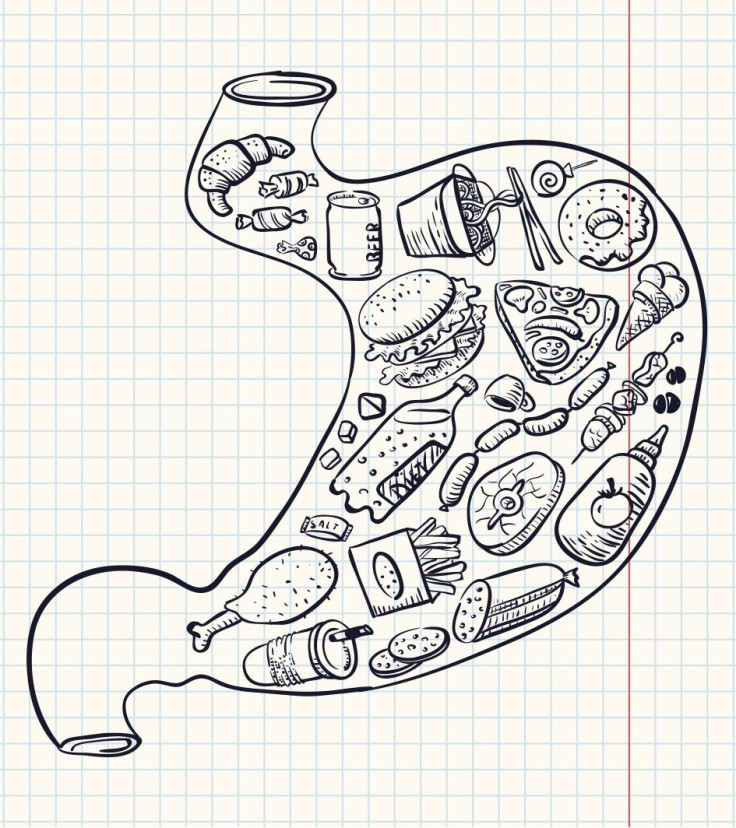Stomach 'Clock' Tells Us How Much To Eat Throughout The Day; Nerves In Our Stomachs Limit Food Intake At Specific Times

For the first time, researchers have shown that stomachs are equipped with nerves that are sensitive to stretching in a way that is synchronized with our circadian rhythm.
The authors reported in The Journal of Neuroscience that a gastric clock affects how quickly and easily mice feel satiated when they eat and is dependent on the time of day. The finding is important in understanding how food intake can fluctuate throughout the day and impact eating habits.
"These nerves are responsible for letting the brain know how much food we have eaten and when to stop eating," Stephen Kentish commented in a press release. Kentish is an author of the paper and researcher at the University of Adelaide’s Nerve-Gut Research Laboratory. "What we've found,” he continued, “is that the nerves in the gut are at their least sensitive at time periods associated with being awake. This means more food can be consumed before we feel full at times of high activity, when more energy is required.”
Conversely, Kentish explained, when the day-night cycle shifts towards sleeping, the nerves in the stomach become more sensitive to stretch, signaling fullness to the brain quicker and thus limiting food intake. “This variation repeats every 24 hours in a circadian manner, with the nerves acting as a clock to coordinate food intake with energy requirements.”
This study adds a new perspective to our knowledge about hunger and food intake. Studies have already established that eating is linked to cellular metabolism, which fluctuates depending on circadian clock genes. But our ultimate 24-hour pacemaker, or “master clock,” maintains our daily sleep-wake cycle and lies in the so-called suprachiasmatic nucleus. This small, paired, wing-shaped structure is tuned to light exposure and is located at the base of the brain.
Now Kentish and team have found that a certain circuit of nerves that are important in controlling the reflexive contractions of gastrointestinal muscle layers are also under the command of clock genes as their mechanical sensitivity changed depending on the circadian rhythm.
Researchers used 8-week-old female mice and studied variations in relevant gene expression every three hours over a 24-hour period. They also recorded the changes in mechanoreceptors of nerves that respond to stretching of the stomach. They found that the response of the tension receptor was not dependent on food intake or even artificially modified light-dark cycle but, rather, on a circadian clock, “which may act to control food intake differentially at different times of the day,” they concluded.
Study leader, Amanda Page, noted that the finding relates to people’s daily routine and the importance of abiding by the body’s digestive variations. “We know that shift workers, for example, are more prone to disruptions in sleep and eating behavior, leading to obesity and other health problems. We are now conducting further research to see what kind of impact such changes to the circadian rhythm will have on eating behavior, and how the nerves in the stomach react to those changes."



























